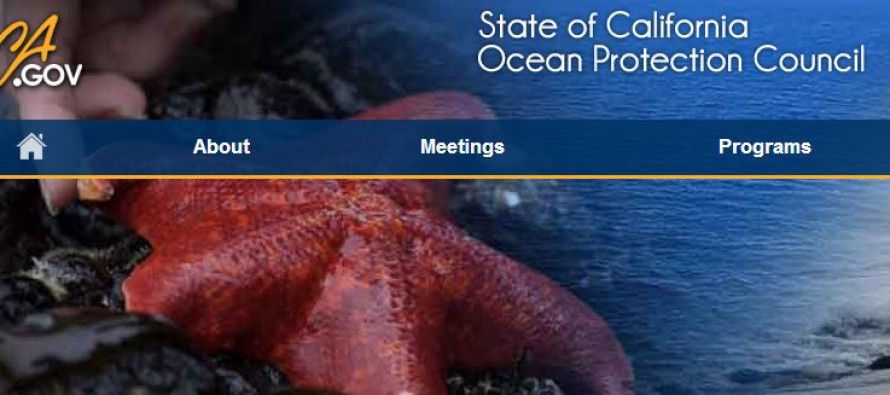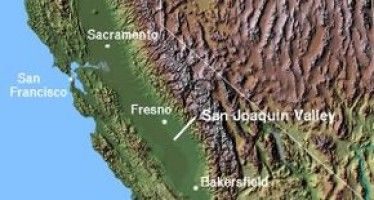Prop. 1 bond funds non-water bureaucracy

 Proposition 1, the new $7.5 billion water bond just passed by the Legislature, contains water storage in an statewide bond for the first time since 1965. It will go before voters on Nov. 4. The previous 21 water bonds since 1971 contained no water storage.
Proposition 1, the new $7.5 billion water bond just passed by the Legislature, contains water storage in an statewide bond for the first time since 1965. It will go before voters on Nov. 4. The previous 21 water bonds since 1971 contained no water storage.
But $297.5 million of the new bond funds mostly are to buy land, not water, purportedly to protect mountain watersheds from unspecified threats. However, bond funding for the Lake Tahoe, Baldwin Hills and Coastal watersheds wouldn’t recharge local water basins or streams that flow into any canals that convey water to farms and cities.
The following 11 conservancies are to receive funding under the new bond:
- Baldwin Hills Conservancy: $10 million;
- California Tahoe Conservancy: $15 million;
- Coachella Valley Mountains Conservancy: $10 million;
- Ocean Protection Council: $30 million;
- San Diego River Conservancy: $17 million;
- San Gabriel and Lower Los Angeles Rivers and Mountains Conservancy: $30 million;
- San Joaquin River Conservancy: $30 million;
- Santa Monica Mountains Conservancy: $30 million;
- Sierra Nevada Conservancy: $25 million;
- State Coastal Conservancy: $100.5 million;
- Sacramento-San Joaquin Delta Conservancy: $50 million.
OPC Garbage Patch
Let’s look more closely at one allocation: $30 million to the Ocean Protection Council. It would preserve no watershed and wouldn’t buy any land. It would just fund jobs for marine biologists.
The OPC was created by the Ocean Protection Act of 2004, Senate Bill 1319, as a “non-appropriations” and “non-tax levy” bill.
The mission of the OPC, according director Catherine Kuhlman, is to “connect people to the ocean” and “protect the coast from climate change” (see Thank You Ocean Report here).
Gov. Jerry Brown appointed Kuhlman to her position in 2012. She makes $131,000 per year. The OPC basically passes money to the nonprofit Ocean Science Trust for “investments” in scientific research.
The OST has produced such research reports as, “Plastic Debris in the California Marine Ecosystem,” which studied the famous “Great Pacific Ocean Garbage Patch” of plastic. The OST claimed the patch was “two times the size of Texas.”
However, researchers at the Scripps Institution and the National Academy of Sciences found that plastic debris in the ocean are tiny, invisible flecks that are not concentrated in a patch — and there is no evidence the flecks are killing birds and fish.
Redundant
The OPC is a redundant layer of bureaucracy to the State Lands Commission, which governs submerged lands along the state’s 1,100-mile shoreline. Brown’s Government Reorganization Plan of 2012 merely shifted the OPC under the Natural Resources Agency.
Earlier, the creation of the OPC was opposed by the Department of Finance in 2004 because:
- “The bill creates a new permanent organization within the state government at a time when the Administration is working to consolidate functions and departments;
- “The bill violates the separation of powers between the Administration and the Legislature; and,
- “Oversight authority for the new Council within the Administration is unclear.”
There is no accountability to the public as to specifically what the $30 million for the OPC and the OST would be spent on.
The goals of the OPC for the next five years include: to improve the knowledge of climate change, study sea level rise mitigation strategies and research ocean acidification and plastic-bag usage. The OPC’s mission is only tangentially related to “Water Quality, Supply, and Infrastructure,” which is the title of the bill putting Prop. 1 on the ballot.
Related Articles
California’s disappearing farmland
More than 370,000 acres of California’s irrigated farmland disappeared from 2006-10. Officials are concerned that hundreds of thousands of
Measure curbing “policing for profit” signed by Gov. Brown
A bill reining in abuse of civil asset forfeiture laws by law enforcement agencies was signed by Gov. Jerry Brown
Potential L.A. NFL teams still in limbo
The NFL’s ungainly effort to determine the fate of three potential Los Angeles teams will drag on into 2016. A mid-January




